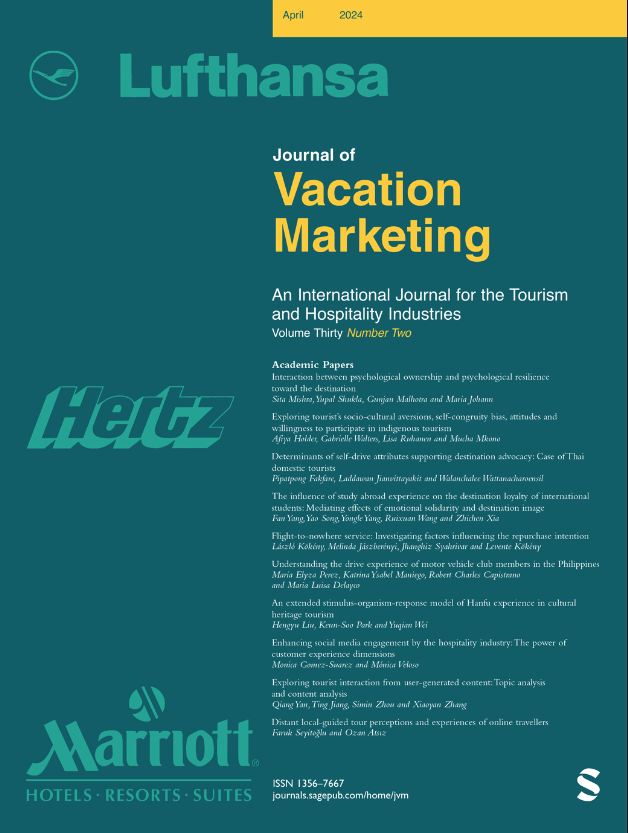Unveiling the impact of consumer animosity and risk perception on tourists’ decision-making
IF 5
3区 管理学
Q1 BUSINESS
引用次数: 0
Abstract
This study examines the impact of diplomatic tensions between South Korea and Japan on tourist decision-making, with a focus on consumer animosity and risk perception. The results indicate that both factors significantly influence attitudes toward visiting Japan, with consumer animosity and avoidance having a direct negative and positive effect, respectively. Consistent with previous research, this study emphasizes the critical role of consumer animosity within the theory of planned behavior framework, highlighting the influential roles of travel attitudes and perceived behavioral control. Specifically, it stresses the importance of considering both cognitive and affective risk perceptions in the context of consumer boycotts and the political instability of destinations. Furthermore, it highlights the key role of tourists’ attitudes toward traveling to Japan, suggesting the need for Japan to prioritize risk management amid the ongoing boycott movement. The study reveals the nuanced role of perceived behavioral control, which has a stronger effect on avoidance intentions than on visit intentions due to anti-purchase movements and negative sentiments at the destination in scenarios of hedonic consumption with high risk and uncertainty.揭示消费者敌意和风险意识对游客决策的影响
本研究探讨了韩日外交紧张局势对游客决策的影响,重点关注消费者的敌意和风险意识。结果表明,这两个因素对游客访问日本的态度有重大影响,其中消费者敌意和回避分别有直接的负面和正面影响。与以往的研究一致,本研究强调了消费者敌意在计划行为理论框架中的关键作用,突出了旅游态度和感知行为控制的影响作用。具体而言,它强调了在消费者抵制和目的地政治不稳定的背景下,同时考虑认知和情感风险感知的重要性。此外,研究还强调了游客对赴日旅游态度的关键作用,表明在抵制运动持续不断的情况下,日本有必要优先考虑风险管理。研究揭示了感知行为控制的微妙作用,在高风险和不确定性的享乐型消费情景中,由于目的地的反购买运动和负面情绪,感知行为控制对回避意愿的影响大于对访问意愿的影响。
本文章由计算机程序翻译,如有差异,请以英文原文为准。
求助全文
约1分钟内获得全文
求助全文
来源期刊

Journal of Vacation Marketing
Multiple-
CiteScore
9.70
自引率
15.70%
发文量
54
期刊介绍:
Journal of Vacation Marketing is a fully peer reviewed international journal that publishes original research and review articles on topics relating to the marketing of destinations and businesses/organisations involved in the wider tourism, hospitality and events industries. Its objective is to provide a forum for the publication of refereed academic papers and reviewed practitioner papers which are of direct relevance to industry, while meeting the highest standards of intellectual rigour.
 求助内容:
求助内容: 应助结果提醒方式:
应助结果提醒方式:


